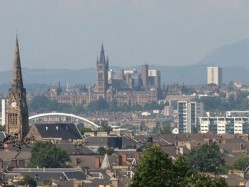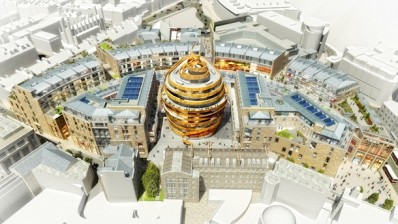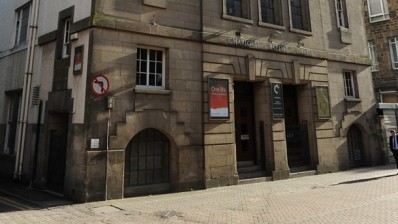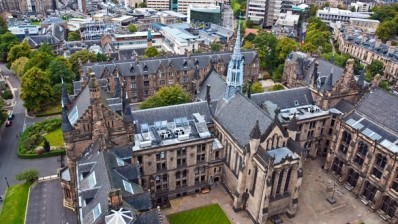Scottish hotels continue to capitalise on events

The research, which tracks city centre hotel performance in the three Scottish cities, showed varying trends during February.
Glasgow achieved the highest room occupancy during the month at 76.4 per cent, despite falling by 2.4 per cent compared to a strong February last year. In Edinburgh, occupancy rose by 2 per cent year-on-year to 72.3 per cent. Meanwhile, Aberdeen’s occupancy decreased by 5.1 per cent compared to last year to 68.9 per cent.
Edinburgh
In Edinburgh the combination of occupancy growth coupled with Average Room Rate (ARR) of £81.96 (an increase of 1.7 per cent) saw Revenue per Available Room (RevPAR) of £59.25 – a growth of 3.7 per cent. This growth was driven in part by two RBS Six Nations ties at Murrayfield and the Valentine’s Day weekend which saw occupancy levels rise to 97 per cent and room rates soar to £154.46.
There is a positive outlook in Edinburgh for the next two months with bookings roughly 5 per cent higher compared to the same period last year.
Edinburgh Hotels Association chairman, Tristan Nesbitt said: “Exciting events such as the Six Nations Championship help to attract visitors to our city outside the peak summer season.
“It is essential that Edinburgh continues to present a diverse calendar of events all year round, as well as offering the best possible hospitality experience to visitors of all budgets.”
Glasgow
Whilst room occupancy fell in Glasgow February marked the 14th consecutive month of ARR growth. The average cost of a room in the city was £64.15, up 1.3 per cent on a year ago. However, RevPAR was down marginally (-0.4 per cent) for the first time in 14 months reaching £49.23. Glasgow also capitalised on the Valentine’s Day weekend as occupancy reached 97% and ARR significantly outperformed the monthly average.
Glasgow forward bookings are up at around 4% compared to last year due to the number of festivals and events set for the City.
Aberdeen
Aberdeen continues to be affected by the corporate market with occupancy and ARR falling for the second consecutive month. Despite the 5.3 per cent decrease in ARR, room rates in Aberdeen remained the highest of the Scottish cities at £93.97. However, a weaker room revenue performance combined with a decrease in occupancy generated for the third successive month negative RevPAR growth (-10.1 per cent).
A decline in the corporate market has seen forward bookings down by 4 per cent compared to last year.
Aberdeen City and Shire Hotels Association chairman, Chris McGuinness said: “We know only too well that the oil industry has peaks and troughs: the sector has enjoyed a phenomenal performance over the past couple of years, so the current downturn has not been unexpected.
“The current decline will not last forever, and as global demand for oil starts to increase so too will the price of Brent crude oil.”
Conclusion
Sean Morgan, managing director at LJ Research, said: “Welsh and Italian rugby fans have no doubt contributed to the growth recorded by Edinburgh hoteliers last month.
“In Aberdeen, our LJ Forecaster results have identified a steepening decline in hotel performance as both occupancy and room revenue metrics fell by 5 per cent compared to last year. Next month’s figures will help us better understand the extent to which corporate demand for accommodation in the city is being buoyed by the recovering oil prices.”



















